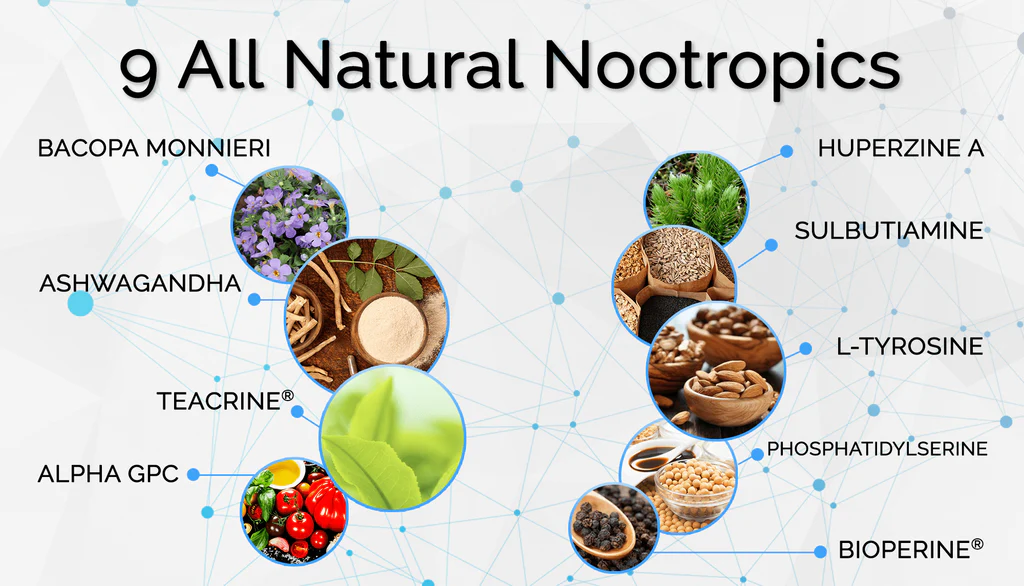Nootropics, also known as smart drugs or cognitive enhancers, are substances that are purported to improve cognitive function, particularly executive functions, memory, creativity, or motivation, in healthy individuals. These substances can include natural compounds, synthetic drugs, or dietary supplements. Nootropics are often used to enhance mental performance, focus, concentration, and overall brain health.
Here are some key characteristics of nootropics:
- Enhanced cognitive function: Nootropics are believed to enhance cognitive abilities, including memory, attention, learning, and problem-solving skills. They may also improve mental clarity and creativity.
- Neuroprotection: Some nootropics are thought to have neuroprotective properties, meaning they can protect the brain from damage and promote its long-term health and functioning.
- Non-toxic and low risk of side effects: True nootropics are generally considered to be safe for use and have minimal risk of adverse effects when taken at recommended doses. They should not cause significant negative side effects or impair cognitive function.
- Non-stimulant or mild stimulant: While some nootropics may have stimulant-like effects, they typically do not produce the same level of stimulation as traditional stimulant drugs like amphetamines or caffeine. Instead, they may provide a subtle increase in energy and alertness without causing jitteriness or insomnia.
- Target specific neurotransmitters or pathways: Nootropics may work through various mechanisms in the brain, such as increasing neurotransmitter levels, enhancing cerebral blood flow, or modulating brain cell metabolism. Different types of nootropics may target different neurotransmitters or pathways involved in cognitive function.
Examples of commonly used nootropics include:
- Caffeine: Found in coffee, tea, and certain energy drinks, caffeine is one of the most widely used stimulants and cognitive enhancers. It can increase alertness, focus, and attention span.
- L-theanine: Often found in green tea, L-theanine is an amino acid that can promote relaxation and reduce stress and anxiety without causing drowsiness.
- Bacopa monnieri: A traditional Ayurvedic herb, Bacopa monnieri is believed to enhance memory and cognitive function and may have neuroprotective effects.
- Modafinil: A prescription medication used to treat narcolepsy and other sleep disorders, modafinil is sometimes used off-label as a cognitive enhancer due to its wakefulness-promoting effects.
- Omega-3 fatty acids: Found in fatty fish and fish oil supplements, omega-3 fatty acids are essential for brain health and may improve cognitive function and reduce the risk of age-related cognitive decline.
- Rhodiola rosea: An adaptogenic herb, Rhodiola rosea is believed to increase energy levels, reduce fatigue, and improve mental performance under stress.
It’s important to note that while some nootropics have scientific evidence supporting their cognitive-enhancing effects, others may have limited research or conflicting results. Additionally, individual responses to nootropics can vary, and what works for one person may not work the same way for another. As with any supplement or medication, it’s advisable to consult with a healthcare professional before using nootropics, especially if you have underlying health conditions or are taking other medications.

